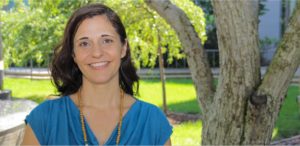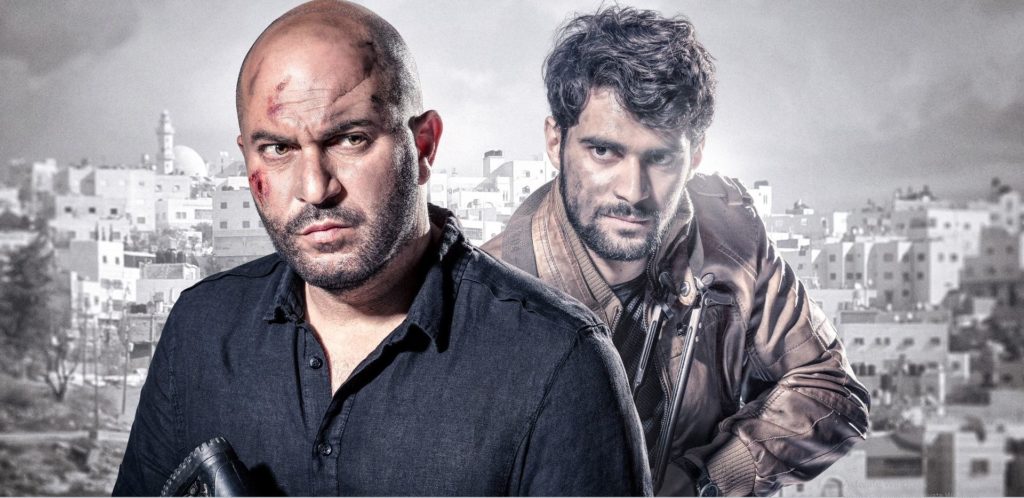If you are not watching “Fauda” on Netflix, I must ask, are you seriously not watching “Fauda” on Netflix?
“Fauda” is an Israeli-made TV show about the conflict. It’s a work of fiction, about the undercover efforts of an Israel Defense Forces unit, trying to outsmart elements of Hamas. The best parts of the show are that everybody’s so achingly human – both sides – and the writers are frankly just good at building suspense.
It’s popular in Israel. Think “Game of Thrones”-popular, said community Shlichah Keren Weisshaus, who watched the first season in Israel before moving here for Milwaukee Jewish Federation and the Jewish Agency for Israel to represent.
“People the next day after (an episode) would come and talk about it,” she remembered.

Omri Bitan
Omri Bitan is a shin shin close to the end of his yearlong service here, acting as a young-adult cultural emissary from Israel as part of a program facilitated by Milwaukee Jewish Federation.
Bitan will grant that “Fauda” is popular, though he thinks if Israelis had to choose between “Game of Thrones” and “Fauda,” the former would win.
Weisshaus emphasized that “Fauda” is not Israel. Please, Wisconsin, don’t assume that the fast-paced, surprise-at-every-turn drama is reality in the Jewish state.
“It’s a great TV program. It’s not real,” she said. “Don’t feel that when you go to Israel, this is what you see. It’s not like that.”
Yes, yes, but it’s still some sort of window on the conflict. I admit that as I watch, I feel I get a better handle on the conflict, even as I understand that plenty has got to be pumped up for TV. Maybe that’s part of the appeal for Israelis too. Most Israelis don’t get to visit Ramallah. But they can visit it through “Fauda.”
Now you should know that like with gauging popularity (super popular vs. just popular), Bitan also doesn’t see eye-to-eye with Weisshaus on the veracity of “Fauda.” This is, after all, a discussion among Jews.
For Bitan, who has a cousin in a similar IDF unit, there’s a lot about “Fauda” that’s realistic.

Keren Weisshaus
“They’re going to their weddings, they’re going to hang out with those people,” he said. “That’s absolutely true. Undercover, all that, that’s happening for sure.”
Also, he feels scenes showing the emotion of it all are very real.
Weisshaus has thought about art and society before, for sure. She’s worked as a curator for art galleries in Israel, sometimes taking on political or uncomfortable topics. “Fauda,” which means “chaos” in Arabic, has been revolutionary for Israeli TV, she said.
“It was a different level of TV for Israelis. It had a very good level of production. The action was very professional,” she said. “It’s very engaging. I was sitting at the edge of my seat. It wasn’t so much what Israelis are used to from TV.”
It’s common both in Israel and America for foreign speakers to speak the native language on television with an accent. Recall all of the World War II movies where Germans speak English with German accents. It you think about it, this is kind of ridiculous, but we’re all accustomed to it and it’s what’s done.
“Fauda” takes risks, and I don’t just mean humanizing both sides and broadcasting a Palestinian-Israeli romance. It takes a risk, too, by including lots of spoken Arabic with subtitles. If you watch it on Netflix, the parts in Hebrew are dubbed with English, which is not as bad as it sounds. But whether you watch it here or in Israel, the audible Arabic is subtitled with English or Hebrew on the screen.
“Almost the entire program is in Arabic. You’re used to TV programs in English but that was something new so that was kind of nice,” Weisshaus said. “That gave it a sense of authenticity. People got accustomed to listening to Arabic.”
But remember, she cautions, “It’s a TV show. There’s no rogue unit in the army that can do whatever it will do and get away with it.”
Still, when we first started talking about “Fauda,” Weisshaus had one key demand: Don’t say anything about the second season. No spoilers, please. She doesn’t want to know.
Rob Golub is editor of the Wisconsin Jewish Chronicle.


